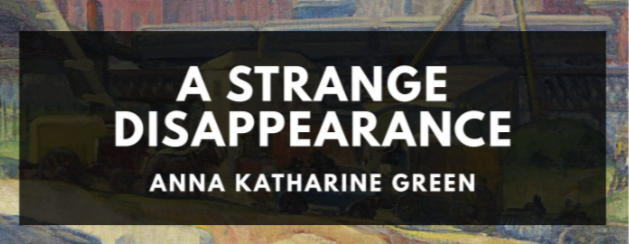CHAPTER XI — A Strange Disappearance
byCHAPTER XI – A Strange Disappearance turns the narrative toward a confessional tone as the gentleman at the heart of the mystery begins to peel back the curtain on a life shaped by constraint, duty, and concealed passion. What begins as an investigation into a vanished servant deepens into a reflection on choices shaped by societal pressure. His father’s stern will left little room for personal desires. This control not only dictated his career but barred his affection for his cousin Evelyn, a woman seen as unsuitable for marriage by the patriarch. Seeking escape from that emotional suppression, he traveled widely. His journeys took him through awe-inspiring landscapes, yet none could erase the memory of what he had left behind. The heart, even when exiled, remains rooted in unresolved attachment.
One stormy evening, far from familiar faces and expectations, he arrived at a remote inn that promised shelter but delivered transformation. Within its dim-lit walls stood Luttra, a woman who bore herself with an intensity that silenced questions and drew attention. Her presence was like the storm itself—wild, sudden, and strangely comforting. Without a word spoken between them, something unspoken was understood. That night, her urgency to flee the inn was not simply fear—it was insight. She sensed danger in the hospitality offered by the innkeeper and his son. It wasn’t the weather outside that posed the real threat—it was what lay behind their calm façades and sharp glances.
Their attempt to leave was met with obstruction. The innkeeper’s resistance was not just about the hour or the weather. There was a calculation in his protest. Luttra, neither passive nor helpless, produced a small sum of money to broker their freedom. Her movements were deliberate. She used currency not for comfort but as leverage against forces she clearly knew too well. The reaction of the innkeeper and his son confirmed something dark beneath their civility. What unfolded next blurred the line between negotiation and intimidation. It wasn’t just a confrontation—it was a test of loyalty and control. The man, now caught in the center of this storm, realized that his fate had quietly become entangled with hers.
What struck him most was not just Luttra’s boldness but the reality that this conflict had deep roots. She wasn’t fleeing strangers but navigating a family dynamic ruled by greed and dominance. The innkeeper and his son weren’t just caretakers—they were her kin. Her offer of money wasn’t a plea; it was a shield forged from desperation and insight. He understood then that her world operated under different rules. One where affection could become a weapon, and trust had to be earned through acts, not words. The storm outside now mirrored the storm within the inn, and neither could be escaped without consequence. Their exit, when it came, was not clean but marked by emotional upheaval and silent promises.
The weight of that night lingered. Luttra’s image, seared into his memory, refused to fade. He saw in her a resilience that stirred something deeper than admiration—it demanded recognition. As the chapter folds into silence, what remains is a man changed. No longer driven solely by memory or obligation, he carries now a question: What if the woman dismissed by society was the only one who ever truly saw him? That thought reshapes everything. It challenges not just his past, but his future decisions. The path ahead is no longer linear—it’s a labyrinth built from secrets, redemption, and perhaps, love.
This chapter subtly shifts the tone of the book, positioning the mystery as more than a disappearance—it is a rediscovery of a man’s heart and identity. Readers see how trauma, when held quietly for too long, finds unexpected release in moments of crisis. Through this personal account, we learn that a single night, a single choice, can fracture a life or reframe it entirely. In today’s context, such moments still happen—decisions made under pressure often expose what people truly value. The chapter reminds us that even in times of fear, the bravest act is sometimes simply choosing to walk beside someone into the unknown.

